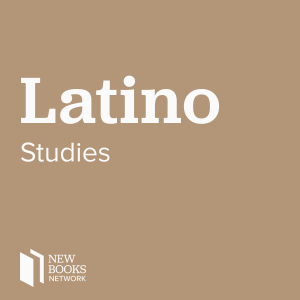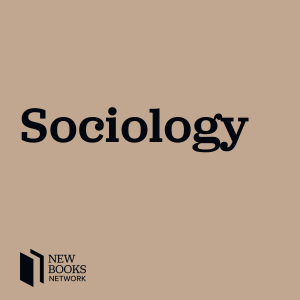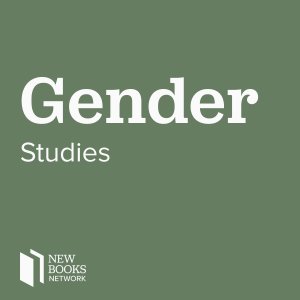

Episode List

Vanessa Fonseca-Chávez and Anita Huízar-Hernández eds., "meXicana Roots and Routes: Listening to People, Places, and Pasts" (U Arizona Press, 2025)
Community voices are often an underrepresented aspect of our historical and cultural knowledge of the U.S. Southwest. In this episode, we sit down with Vanessa Fonseca-Chávez and Anita Huízar-Hernández, editors of meXicana Roots and Routes: Listening to People, Places, and Pasts (U Arizona Press, 2025). In this collection, established and emerging scholars draw upon their rootedness in the U.S. Southwest and U.S.-Mexico borderlands. The meXicana contributors use personal and scholarly inquiry to discuss what it means to cultivate spaces of belonging, navigate language policies, and explore and excavate silences in various spaces, among other important themes.From the recruitment of Latinas for the U.S. Benito Juárez Squadron in World War II, to the early twentieth-century development of bilingual education in Arizona, to new and insightful analyses of Bracero Program participants and their families, the book details little-known oral histories and archival material to present a rich account of lives along the border with emphasis on women and the working class.As the inaugural publication of the Arizona Crossroads series, readers will find Arizona featured as a central node of borderlands roots and routes. Each section of the book intentionally centers Arizona within broader comparative and cross-state dialogues. Throughout, this volume highlights the ways in which personal experience, community building, and scholarly perspectives can provide a powerful space for community voices.Contributors: Vanessa Fonseca-Chávez Lillian Gorman Gloria Holguín Cuádraz Anita Huízar-Hernández Christine Marin Valerie A. Martínez Alina R. Méndez Karen R. Roybal Yvette J. Saavedra Liliana Toledo-Guzmán Andrea Tovar Learn more about your ad choices. Visit megaphone.fm/adchoicesSupport our show by becoming a premium member! https://newbooksnetwork.supportingcast.fm/latino-studies

Philis Barragán-Goetz, "Reading, Writing, and Revolution: Escuelitas and the Emergence of a Mexican American Identity in Texas" (U Texas Press, 2020)
Debates about Ethnic Studies in K-12 and Higher Education have highlighted the importance of culturally inclusive pedagogy in schools. Despite discussions about Ethnic Studies, there is a more extended history of Mexican-origin people pushing for culturally responsive education. In Reading, Writing, and Revolution: Escuelitas and the Emergence of a Mexican American Identity in Texas (University of Texas Press, 2020), historian Philis M. Barragán-Goetz argues that through cultural negotiation, escuelitas (community schools) shaped Mexican American identity and civil rights activism in the late 19th and early 20th century.Barragán Goetz weaves in oral histories, government documents, newspapers, and archival sources to demonstrate the power in grassroots organizing for educational justice in Texas. She debunks a popular myth that Mexican Americans have not cared for education throughout history. Barragán Goetz writes that the progressive education movement in the late 19th century was not all that progressive if we examine the lived experienced of Mexican-origin people. Activists such as Idar Family, Villegas de Magnon, Maria Villarreal, Maria Renteria, and many involved in the two main Mexican American civil rights organizations of the time provided a foundation for Latina/os to be part of the fight for educational inclusion in the 20th century. Reading, Writing, and Revolution is not merely a book about educational history; it is a trailblazing study on how Mexican Americans have relied on any tools available to create a more inclusive educational system for themselves and their community.Philis M. Barragán Goetz is an Assistant Professor of History at Texas A&M University - San Antonio. She earned her Ph.D. from the University of Texas at Austin. She can be found on Twitter: @philismariaTiffany Jasmin González, Ph.D. is the Postdoctoral Fellow in Women’s History at the Newcomb Institute of Tulane University. You can follow Tiffany on Twitter @T_J_Gonzalez Learn more about your ad choices. Visit megaphone.fm/adchoicesSupport our show by becoming a premium member! https://newbooksnetwork.supportingcast.fm/latino-studies

Vanessa Diaz, "Manufacturing Celebrity: Latino Paparazzi and Women Reporters in Hollywood" (Duke UP, 2020)
While Hollywood’s images present a veneer of fantasy for some, the work to create such images is far from escapism. In Manufacturing Celebrity: Latino Paparazzi and Women Reporters in Hollywood (Duke University Press, 2020), anthropologist Vanessa Díaz examines the raced and gendered hierarchies and inequalities that are imbricated within the work of producing celebrity in Los Angeles, CA. Díaz’s ethnography follows reporters and paparazzi to examine their everyday practices of work and labor that bring celebrity images and stories into being on the pages of celebrity magazines. Grounded in media workers’ perspectives and everyday life, this book carefully situates Latino paparazzi and women reporters in relationship to the particular vulnerabilities that they face. For example, Díaz traces a shift in the demographic of the paparazzi from white men to Latino men, and with it a significant shift in the tone of insults levied against them. Women reporters remain vulnerable to sexual harassment and other dangers in carrying out their work. Hollywood presents itself to its audience through its carefully crafted films, images, and stories. Díaz’s work troubles this facade by centering the work and challenges of the everyday laborers who produce it.Vanessa Díaz is an Assistant Professor in the Department of Chicana/o and Latina/o Studies at Loyola Marymount University.Reighan Gillam is an Assistant Professor in the Department of Anthropology at the University of Southern California. Learn more about your ad choices. Visit megaphone.fm/adchoicesSupport our show by becoming a premium member! https://newbooksnetwork.supportingcast.fm/latino-studies

Disco's "Latin Tinge"
In the 1930s, musical Ferdinand “Jelly Roll” Morton identified the influence of Latin American rhythms like the habanera in jazz, as a sonic “tinge” that fundamentally shaped his style as a stride pianist. In the Seventies, disco presented its own Latin tinge. The Latin American and Latino influence on 1970s New York disco extended far beyond the familiar narratives of the Paradise Garage and Studio 54, creating vibrant spaces that celebrated cultural fusion and community. Clubs like the Ipanema Discotheque, Copacabana, and Roseland Ballroom became crucial venues where Latin rhythms, Brazilian beats, and Caribbean sounds mixed with emerging disco to create something entirely new. These spaces, often overlooked in mainstream disco histories, were essential to the genre's evolution—places where the infectious energy of Latin music met the innovative production techniques of American dance music. The DJs who commanded these dance floors brought not just technical skill but cultural knowledge, understanding how to weave together the musical traditions of their homelands with the cutting-edge sounds emerging from New York's studios and clubs. In the fourth episode of Season Two of Soundscapes NYC, hosts Ryan Purcell and Kristie Soares welcome DJs Ronnie Soares and Luis Mario Orellana Rizzo to explore the Latin American contributions to New York's disco revolution. Soares, born in Brazil and arriving in New York as a teenager, became a DJ by accident in 1974 when asked to spin a Brazilian night at the French club Directoire. Though initially a dancer, he quickly became resident DJ at the famed Ipanema Discotheque and went on to create "Midnight Disco" at Roseland Ballroom—the first club in the city to hold 5,000 people. Rizzo began his career at the very inception of club culture in 1969-70, learning from DJ Francis Grasso before working at legendary venues including Cork & Bottle and Copacabana. As the first DJ to tour nationally and internationally, Rizzo helped spread dance music globally while founding Legends of Vinyl, an archival project celebrating the art of DJing. Learn more about your ad choices. Visit megaphone.fm/adchoicesSupport our show by becoming a premium member! https://newbooksnetwork.supportingcast.fm/latino-studies

Darren W. Davis and David C. Wilson, "Racial Resentment in the Political Mind" (U Chicago Press, 2021)
In Racial Resentment in the Political Mind, Darren W. Davis and David C. Wilson challenge the commonly held notion that all racial negativity, disagreements, and objections to policies that seek to help racial minorities stem from racial prejudice. They argue that racial resentment arises from just-world beliefs and appraisals of deservingness that help explain the persistence of racial inequality in America in ways more consequential than racism or racial prejudice alone.The culprits, as many White people see it, are undeserving people of color, who are perceived to benefit unfairly from, and take advantage of, resources that come at Whites’ expense—a worldview in which any attempt at modest change is seen as a challenge to the status quo and privilege. Yet, as Davis and Wilson reveal, many Whites have become racially resentful due to their perceptions that African Americans skirt the “rules of the game” and violate traditional values by taking advantage of unearned resources. Resulting attempts at racial progress lead Whites to respond in ways that retain their social advantage—opposing ameliorative policies, minority candidates, and other advancement on racial progress. Because racial resentment is rooted in beliefs about justice, fairness, and deservingness, ordinary citizens, who may not harbor racist motivations, may wind up in the same political position as racists, but for different reasons. Professor Davis’ research interests include most areas in public opinion and political behavior. A unifying theme running through much of his research is a concern for identifying the social psychological motivations underlying political attitudes and behavior. This approach has been applied to specific research areas, including political tolerance, implicit racial attitudes, the role of threat and anxiety in political behavior, public reactions to terrorism, social desirability, the measurement of political and social attitudes, racism and racial politics, and the political behavior of African Americans.Professor Davis is co-author of a forthcoming Cambridge University Press book, Perseverance in the Parish? Religious Attitudes from a Black Catholic Perspective. Based on the first national survey of African American Catholics, this book explores the perceptions of racism and racial experiences in the Catholic Church. His other book, Negative Liberty: Public Opinion and the Terrorist Attacks on America, examines the role of threat perceptions on the tradeoffs between civil liberties and security, political tolerance, and ideas of citizenship. Learn more about your ad choices. Visit megaphone.fm/adchoicesSupport our show by becoming a premium member! https://newbooksnetwork.supportingcast.fm/latino-studies
Create Your Podcast In Minutes
- Full-featured podcast site
- Unlimited storage and bandwidth
- Comprehensive podcast stats
- Distribute to Apple Podcasts, Spotify, and more
- Make money with your podcast












